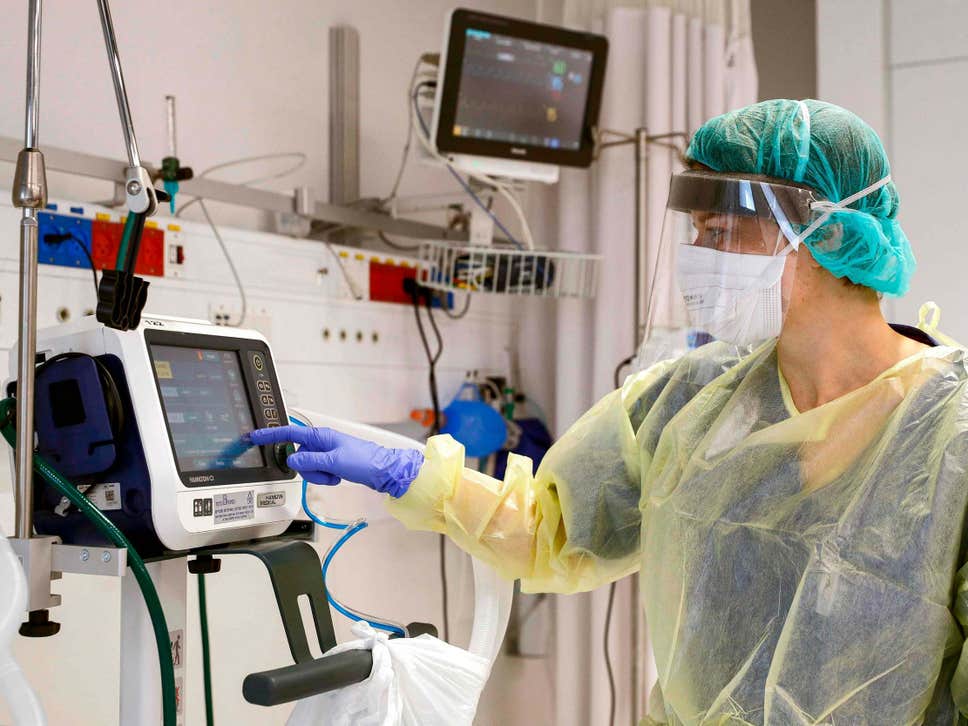Earlier this month hospitals in England have were told to postpone all elective operations from 15 April at the latest, for a period of at least three months, in a striking sign of how the coronavirus outbreak is set to strain vital services in the UK. The move left millions of patients waiting for knee and hip replacements, cataract surgery and hernia repairs facing delays to their treatment.
Then this week, an NHS hospital trust became the first in the country to announce the postponement of all routine cancer surgery and chemotherapy due to a surge in coronavirus patients. It comes after NHS hospitals were advised to ration cancer services to patients with the highest chance of survival in the event of a major coronavirus outbreak. Doctors say treatment changes have to be weighed carefully in close consultation with patients. Some calls are relatively straightforward. For example, surgeries can be delayed for some thyroid and early-stage prostate cancers, which have high survival rates, but not for pancreatic cancer, which is much more deadly. For patients with aggressive leukaemia and lymphoma, treatment usually can’t be postponed. Karol Sikora, chief medical officer at independent provider Rutherford Health told the Health Service Journal: “Nobody knows how bad it’s going to get — that’s the trouble. The danger is… if staff are taken away [from cancer treatments] to help patients in ICU on ventilations. Do you keep a [patient] on a vent with a 10 per cent chance of survival and throw cancer patients under the bus?”
Many outpatient clinics will be scaled back, held by telephone or video instead or scrapped altogether, affecting many of the 8 million patients who attend them every month. In some hospitals, A&E doctors and nurses will be redeployed to treat coronavirus patients, with orthopaedic staff - who usually deal with conditions affecting bones and joints such as broken limbs - given extra training to take on their roles in the emergency department.

Overall, the strain on capacity from the epidemic is likely to be most keenly felt in intensive care units. NHS England figures published on Thursday indicate that in January there were 4,123 adult critical care beds available with 3,423 occupied — an occupancy rate of 83 per cent. Although estimates of the number of intensive care beds that could be needed vary, most projections are way above what could be available and leaders including former health secretary Jeremy Hunt have suggested the NHS may be unable to cope. “If 5 per cent of the population get the virus and 5 per cent of those people need an intensive care bed, that’s over 150,000 people who will need intensive care and we only have 4,000 beds,” he told C4 News on Thursday.
The emergency policy to postpone hundreds of thousands of non-urgent operations and treatments carried out in England each month, in addition, to immediately sending hospital patients who are medically fit home, will free a third of the 100,000 hospital beds, says NHS England. Operating theatres where these procedures are normally carried out are equipped with oxygen supplies, meaning they "can be turned into wards" for coronavirus patients. Hospital bosses said the unprecedented changes would disappoint patients but were needed, given the scale of the threat.
Prof Steve Field, the chair of the board of the Royal Wolverhampton NHS Trust, which runs the city’s New Cross hospital, told the Guardian: “Stopping elective operations has helped us to more than double the number of ventilators we have to 70. We are also reorganising our acute medical wards to cope with patients who have coronavirus, and getting doctors and nurses to work across specialities.”
While no-one can argue the necessity of this move, elective surgery doesn’t mean optional surgery and what is truly non-urgent is not always so obvious. For millions of patients, the cancelled appointments have meant rescheduling long-anticipated and life-changing surgeries, leaving them in pain and fear not knowing when they will receive the care they need. Earlier this week Guy’s and St Thomas’ trust wrote to a patient to explain a delay to potentially life-saving surgery because it was “expecting all non-urgent surgeries to be cancelled due to the current crisis”. The letter said: “Due to the ever-changing state of Covid-19 we have just been informed that we cannot book any surgeries later than three weeks from now and there were no slots with the surgeon available before then.”
And at some point, depending on how long the coronavirus outbreak lasts, some non-urgent surgeries could very well become urgent, particularly as when hospitals do have capacity again, they will have a backlog of postponed surgeries to go through.







